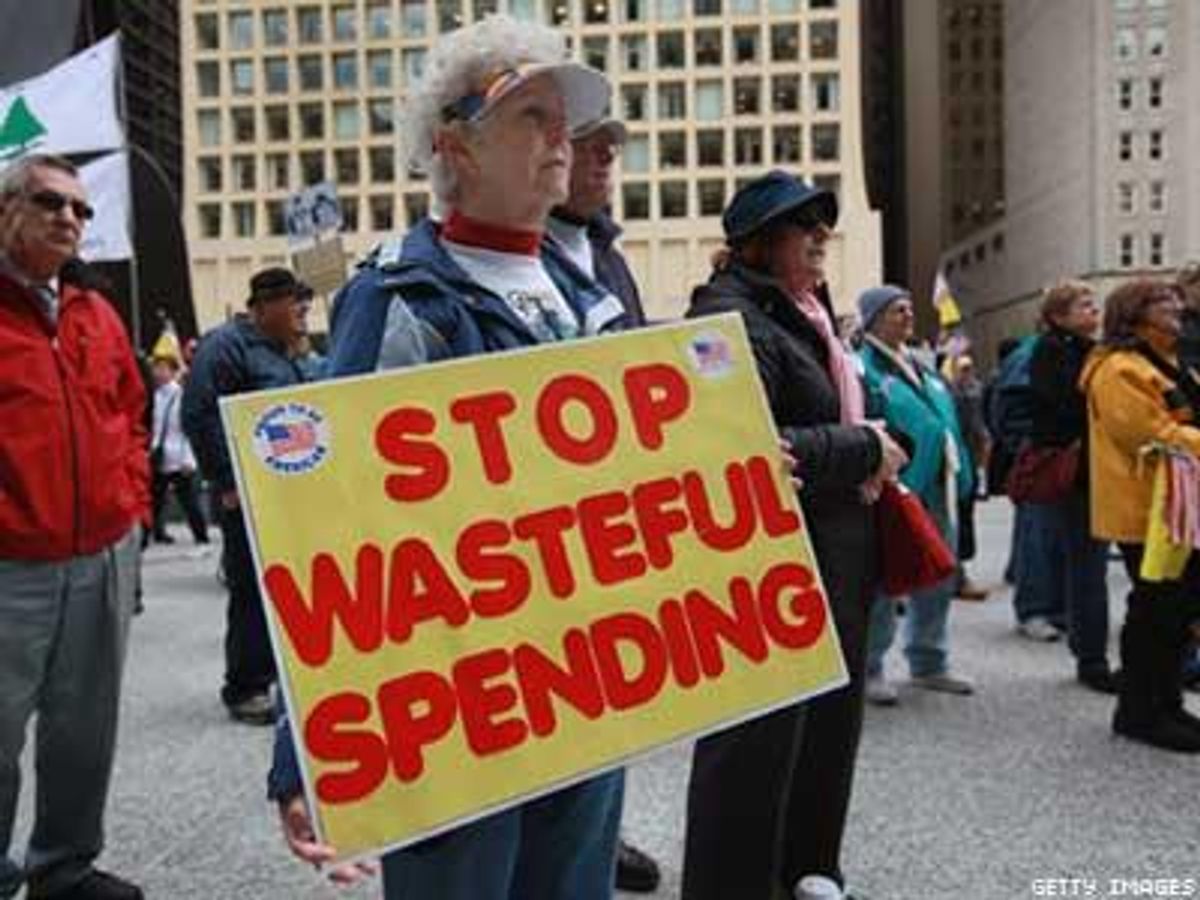Question: We're planning a dinner party next month when my partner's gay cousin comes to town. The two of them have had a lot of fun being "the lesbian cuzzes" in their very traditional family, but a recent email from her has me worried. She's gone all Tea Party on us. I'm personally appalled, but I'm even more worried that our dinner table will become a battleground, as all the other guests are outspoken, liberal gay friends of ours. How do I head off a blowup?
Answer: The fine art of hosting a successful dinner party starts with a smart invite list. Who's likely to get along, which guests have common interests, who can keep a good conversation going? It certainly sounds like you've got yourself a lively list, which could make for a spirited and fun evening - or a disaster.
I understand your worries about your soiree ending up in fisticuffs -- after all, that's why traditional manners forbids discussing politics or religion at the dinner table. Still, even if many of our political leaders lack civility, your friends (and family) are civilized people (are they not?). I'd like to think that we can passionately, even vehemently, disagree over political issues without resorting to insults (or injury). Consider this a dress rehearsal.
As the host, you're responsible for all comers to enjoy themselves and to act respectfully. Here's what I'd suggest:
Option 1: Tell your cousin-in-law that you relish the idea of discussing politics, but not at your dinner party. You could also tip off one or two of your nearest and dearest guests telling them that their secret mission (should they agree to accept) is to change the subject when the political heat nears the boiling point.
Option 2: Acknowledge your differences and agree to disagree (at least for the duration of the event). For instance, some families with strong political divisions agree to ground rules before getting together. In your case, consider sending an email to all guests stating that political discourse is off-limits at your dinner. I have a friend who chooses a "safe word" to be used in the event the conversation starts to get too hot; they've managed to have numerous red and blue get-togethers free of politics, drama, and resentment.
Option 3: Seat "Ms. Tea Party" near folks with whom she shares some other interest. Are there other guests who went to school near her hometown, who recently vacationed in a place you know she loves, or who have the same passion for mountain biking? A little behind-the-scenes seat engineering can keep the conversation off the usual Tea Party villains -- taxes, regulation, and the nanny state -- and avoid mayhem at your table.
Option 4: Be prepared to step in quickly if necessary. Certainly, there's no reason to intervene if two guests are engaging in an animated conversation, but draw the line at any name-calling or shouting. If this occurs, try to interject some thoughtful questions into the exchange. If that doesn't work, ask the hothead to join you in the kitchen "for a moment to help out" and then read her the riot act about respect and civility at your table.
Option 5: Watch the alcohol consumption during the party. The more inebriated your guests become, the more inflammatory their rhetoric becomes. (Or, and I'm just joking, pour double shots for your guests, sit back, and enjoy "the show" as your friends eviscerate your partner's cousin.)
Finally, although I know you're worried about this particular guest bringing unwanted opinions to your party, be prepared to protect her. Sounds like she'll be outnumbered at your table, and you don't want your more liberal friends to bully her. Be sure you've got her back - after all, isn't that what family's for?
STEVEN PETROW is The Advocate's manners columnist and author of Steven Petrow's Complete Gay & Lesbian Manners and can be found online at www.gaymanners.com. or contact him on Facebook and Twitter. Got a question? Email Steven at ask@gaymanners.com.

















































































